Feature: Gaza markets emptied amid boycott over soaring prices
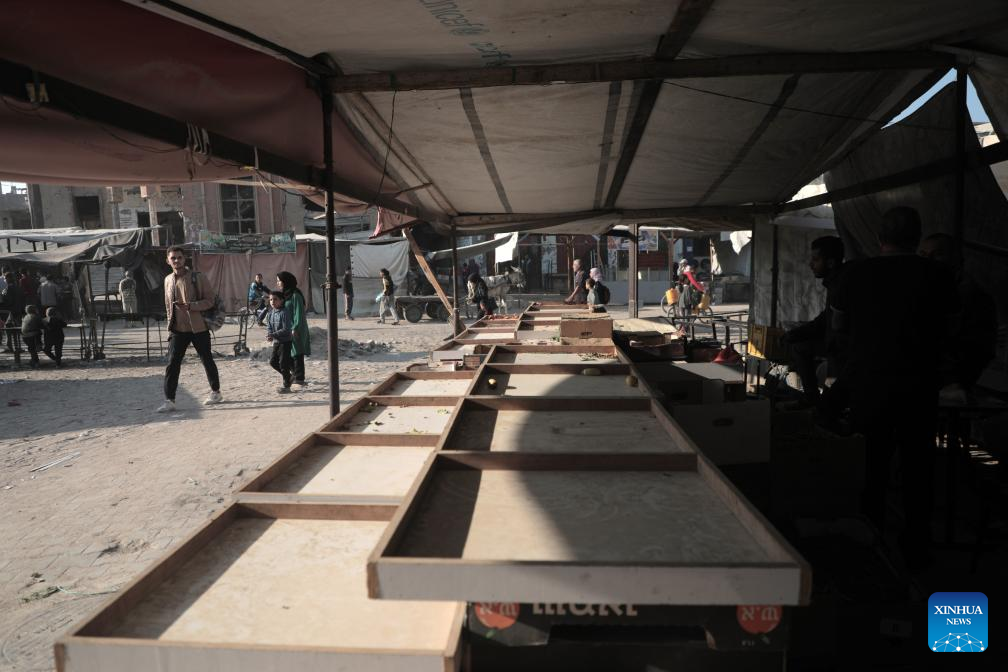
People are seen at an empty market in the southern Gaza Strip city of Khan Younis, on Nov. 5, 2024. Markets in central and southern Gaza seemed unusually empty on Tuesday, with only a handful of vendors selling their products at what they claimed were "good" prices. In a rare protest since the outbreak of the conflict between Israel and Hamas in October 2023, many locals have chosen to boycott the markets, frustrated by what they perceive as exorbitant pricing. (Photo by Rizek Abdeljawad/Xinhua)
GAZA, Nov. 5 (Xinhua) -- Markets in central and southern Gaza seemed unusually empty on Tuesday, with only a handful of vendors selling their products at what they claimed were "good" prices.
In a rare protest since the outbreak of the conflict between Israel and Hamas in October 2023, many locals have chosen to boycott the markets, frustrated by what they perceive as exorbitant pricing.
For Mohammed Amer, a displaced resident from Deir al-Balah in central Gaza, the decision to strike is a last stand against what he describes as traders' monopolistic practices.
"We have launched a comprehensive market strike to protest the traders' monopolization of goods and sky-high prices amid the ongoing Israeli war," said Amer, who joined dozens of others gathered near a Khan Younis market. The boycott is expected to last several days, with residents considering further actions to press traders for fairer prices.
The protest comes amid a staggering 283 percent increase in Gaza's consumer price index since the conflict began, according to the Palestinian Statistics Bureau. In southern and central Gaza, where the World Food Programme recently warned of dwindling wheat flour supplies, the economic crisis has, in the agency's words, reached a "breaking point."
The protesters attribute the sharp rise in market prices to the near-total absence of regulatory oversight in the conflict-ravaged enclave. They argue that traders, with no authorities to rein them in, have exploited the crisis to raise prices unchecked.
"Traders are manipulating prices because there is no oversight," said Yousef Mahna, a resident of Khan Younis. Mahna, displaced with his seven children, described their diet as whittled down to little more than bread, tea, and thyme.
"Isn't the bombing, destruction, and terror enough, without the traders adding to our suffering by profiting from the starving refugees?" the 45-year-old father asked bitterly.
Other residents accused merchants of hoarding aid supplies, alleging that trucks carrying essentials never reached the markets but were instead funneled into warehouses, allegedly to drive prices up. "We saw with our own eyes the trucks of goods and vegetables that entered southern Gaza, but they didn't reach the markets," said Samiha Ayoub, a mother of five.
However, merchants defend themselves as caught in the same web of chaos. "People accuse us of greed, but we're victims too," said Ali Ahmed, a local trader who described paying armed bandits to secure safe passage for his goods through the besieged territory.
Today, three-quarters of Gazans depend on food aid to survive, according to the World Food Programme. For many residents, basic commercial goods are now a distant luxury, as Gaza's economy teeters on the edge of collapse, leaving the most vulnerable to shoulder an increasingly unbearable burden.
"I used to get my food from the UN institutions, but now no one helps us," Ayoub said, worrying about her five children now facing starvation as she doesn't have any way to bring food to the table.
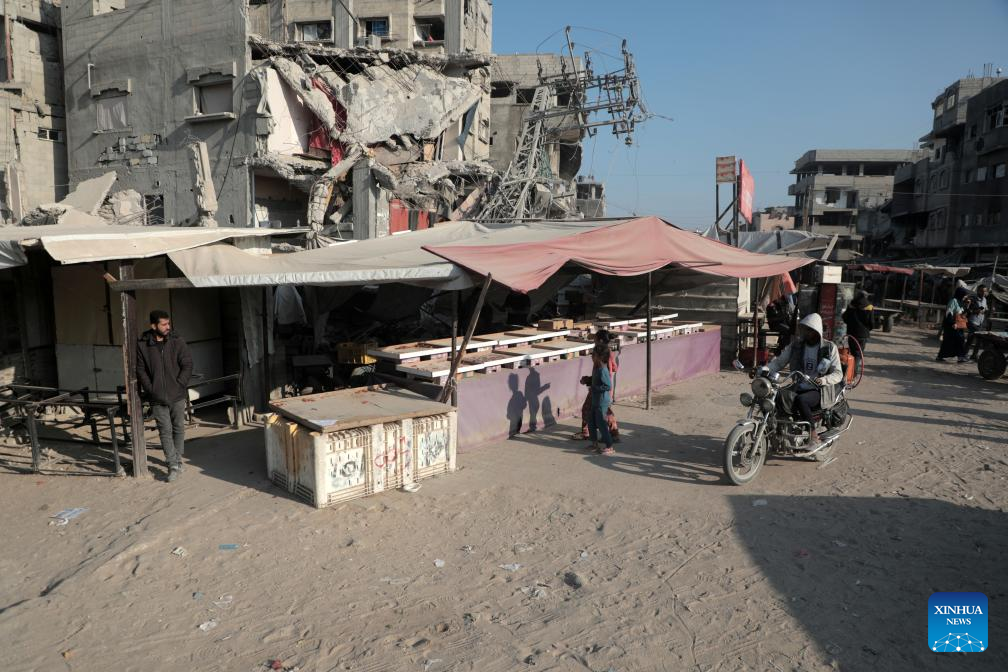
People are seen at an empty market in the southern Gaza Strip city of Khan Younis, on Nov. 5, 2024. Markets in central and southern Gaza seemed unusually empty on Tuesday, with only a handful of vendors selling their products at what they claimed were "good" prices. In a rare protest since the outbreak of the conflict between Israel and Hamas in October 2023, many locals have chosen to boycott the markets, frustrated by what they perceive as exorbitant pricing. (Photo by Rizek Abdeljawad/Xinhua)
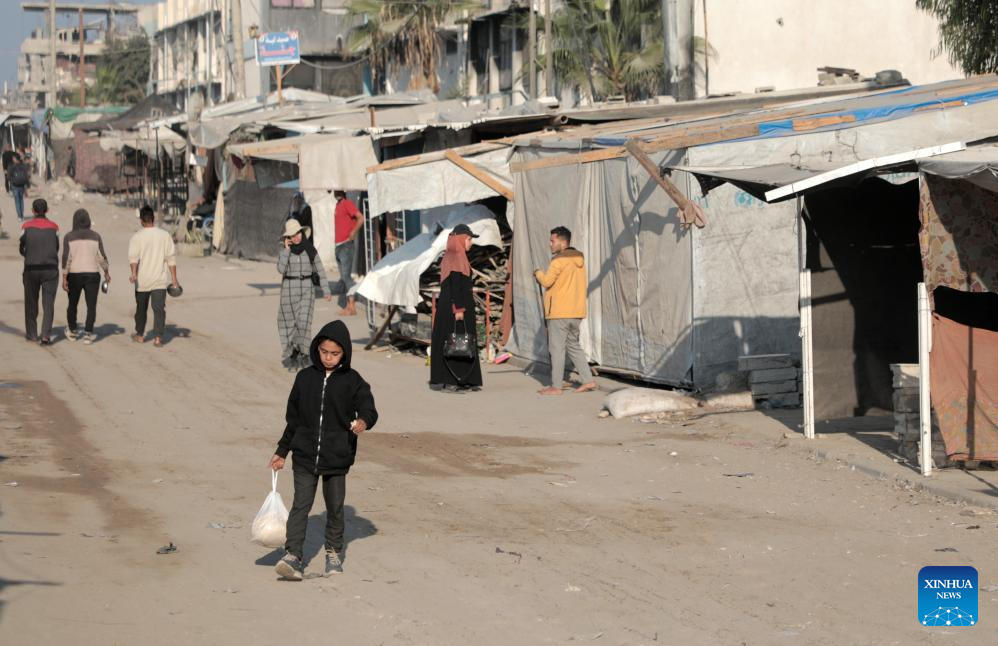
People are seen at an empty market in the southern Gaza Strip city of Khan Younis, on Nov. 5, 2024. Markets in central and southern Gaza seemed unusually empty on Tuesday, with only a handful of vendors selling their products at what they claimed were "good" prices. In a rare protest since the outbreak of the conflict between Israel and Hamas in October 2023, many locals have chosen to boycott the markets, frustrated by what they perceive as exorbitant pricing. (Photo by Rizek Abdeljawad/Xinhua)
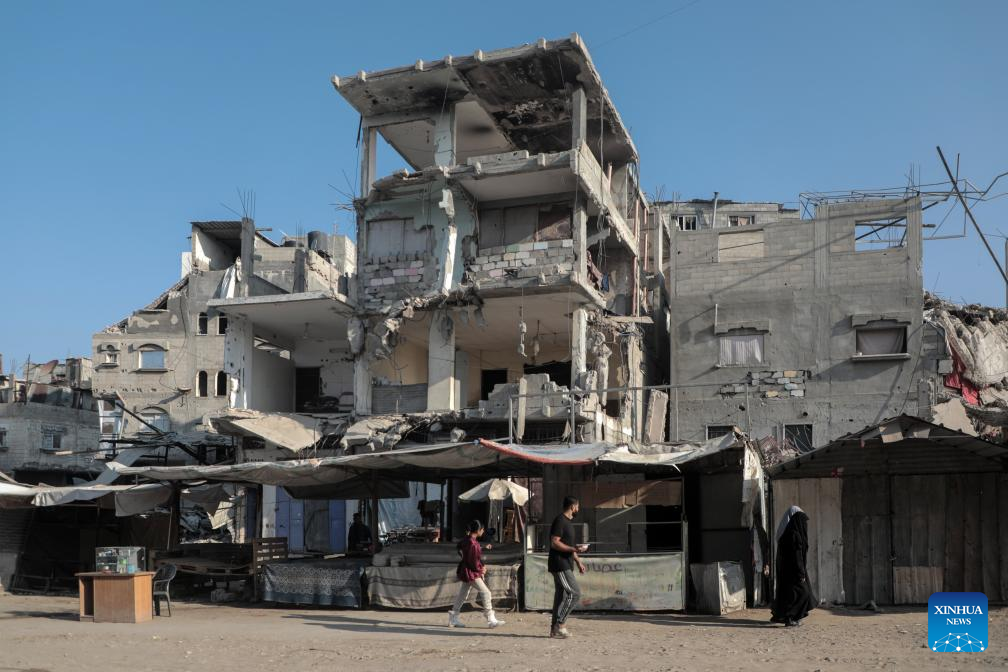
People are seen at an empty market in the southern Gaza Strip city of Khan Younis, on Nov. 5, 2024. Markets in central and southern Gaza seemed unusually empty on Tuesday, with only a handful of vendors selling their products at what they claimed were "good" prices. In a rare protest since the outbreak of the conflict between Israel and Hamas in October 2023, many locals have chosen to boycott the markets, frustrated by what they perceive as exorbitant pricing. (Photo by Rizek Abdeljawad/Xinhua)
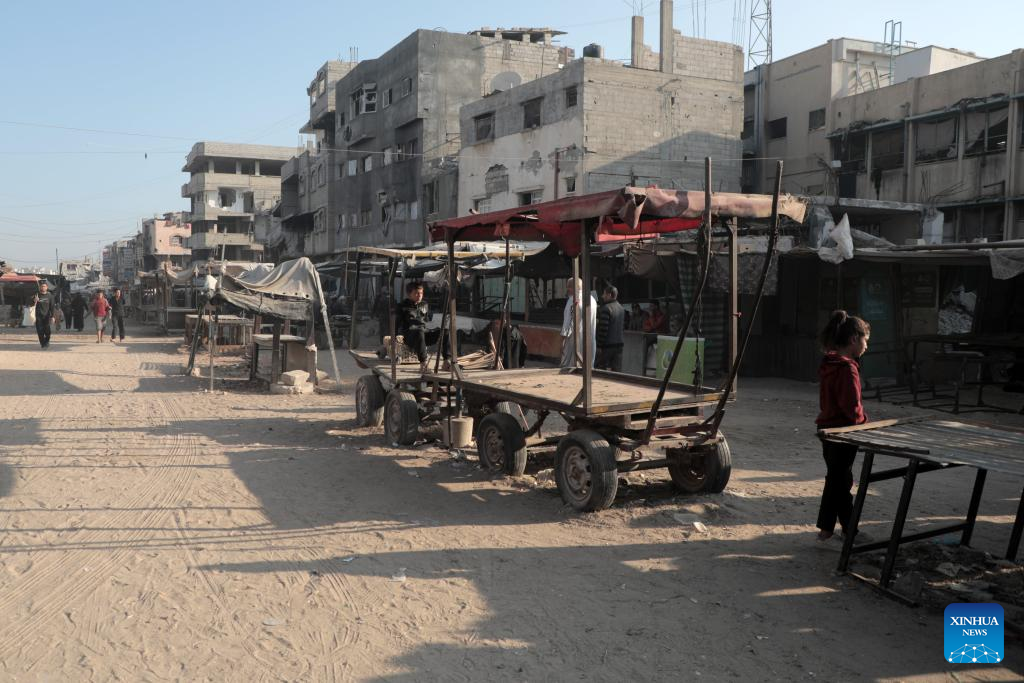
People are seen at an empty market in the southern Gaza Strip city of Khan Younis, on Nov. 5, 2024. Markets in central and southern Gaza seemed unusually empty on Tuesday, with only a handful of vendors selling their products at what they claimed were "good" prices. In a rare protest since the outbreak of the conflict between Israel and Hamas in October 2023, many locals have chosen to boycott the markets, frustrated by what they perceive as exorbitant pricing. (Photo by Rizek Abdeljawad/Xinhua)
Photos
Related Stories
- At least 12 killed in Israeli airstrikes on Gaza City
- Palestinian death toll from Israeli attacks on Gaza surpasses 43,000
- 53 killed in Israeli strikes across Gaza: sources
- Chinese envoy calls for upholding, revitalizing effectiveness of UN Security Council resolutions
- Chinese FM says humanitarian disasters in Gaza should not continue
Copyright © 2024 People's Daily Online. All Rights Reserved.









